Arsenal F.C. Under-23s and Academy
Arsenal Football Club Academy is the youth system of Arsenal Football Club based in Hale End, London, England. The academy teams play in the Professional Development League, the highest level of youth football in England. The club also competes in the FA Youth Cup and UEFA Youth League competitions. Former player Per Mertesacker is the current academy manager.[1]
| Full name | Arsenal Football Club (Under-23s and Academy) | ||
|---|---|---|---|
| Nickname(s) | The Gunners | ||
| Ground | Meadow Park | ||
| Capacity | 4,502 | ||
| Academy Manager | Per Mertesacker | ||
| League | Professional Development League, (Division 1) | ||
|
| |||
Arsenal Under-23s, previously referred to as the Reserves, is the highest level squad within the setup. They train at the Arsenal Training Centre play the majority of their home games at Meadow Park,[2] which is the home of Boreham Wood FC. On occasion they also play at Arsenal's Emirates Stadium. Senior players occasionally play in the reserve side, as in the case when they're recovering from injury. Steve Bould currently manages the reserve team.
Arsenal's Academy is one of England's most successful, winning seven FA Youth Cups together with six Premier Academy League titles altogether.[3][4][5] Numerous international players have graduated from the academy and reserve teams.
Reserve team history
Early Years (1887–1919)
Since Arsenal were based in Plumstead as Royal Arsenal F.C., they had a reserve side which was at first set up in 1887. The club initially played friendlies and cup competitions, winning the 1889–90 Kent Junior Cup. In 1895–96 the club which was renamed Woolwich Arsenal in 1891 had their reserves join the Kent League, winning the title the next season but leaving circa 1900.[6] They later joined the London League where they won three titles during the 1900s.
From 1900–01 to 1902–03 the reserves played in the West Kent League, winning the league title in every season they featured within such.[7] As they were at a level higher than their local opponents, in 1903 the team moved to South Eastern League, playing there until 1914–15 when football was suspended due to the First World War. Concurrent to this period, the reserves also entered in the London League First Division in the 1906–07, 1907–08, 1908–09, 1913–14 and 1914–15 seasons. The club went on to omit the "Woolwich" from their title in 1913, so as to be known only as "Arsenal".
The Football Combination [Pre War] (1919–1939)
Following the end of World War I in 1918, Arsenal Reserves took the first team's place in the London Combination league which was renamed the Football Combination in the summer of 1939.[8] For the 1926–27 season, the competition was expanded to include teams as far afield as Portsmouth, Swansea, Southend and Leicester. During the inter-war period Arsenal's reserves matched the first team's success, winning the League South A title of 1940 and 1943 as well as being the London league champions of 1942.[8] Additionally, from 1931 onwards the club's reserves were entered into the London Challenge Cup, winning it twice in 1933–34 and as well in 1935–36.[9]
To give opportunities to younger players, Arsenal created an 'A' team in 1929. Initially the 'A' team entered the London Professional Mid-Week League and were champions in 1931–32.[7] They then competed in the league until the 1933–34 footballing season. Wherein, during the summer of 1934, Arsenal had taken on Kent side Margate as their nursery team. Arsenal had agreed to send promising youngsters to Margate to give them experience in the Southern Football League and were given first choice on any Margate players. The two clubs thus enjoyed being within this relationship which had lasted for four years before Arsenal broke it off in 1938.[10][11] Afterwards, Arsenal entered the reserve team in the Southern League in its own right with home games being played at Enfield F.C.'s stadium at Southbury Road.[12] The club eventually finished in 6th place in the league season of 1938–39.
At the start of the 1939–40 season the reserves played two Football Combination games and one Southern League game before football was partly suspended due to the outbreak of the Second World War.[8]
The Football Combination [Post War] (1945–1999)
For the 1946–47 season, the Football Combination resumed but the league was split into two divisions with the winners of each division playing in a final to decide the champions. A new competition was introduced – the Football Combination Cup. This was the same teams that played in the Football Combination but divided into 4 groups with the winners of each group playing in semi-finals and a final. This format continued until the end of the 1954–55 season. From 1955–56 the Football Combination continued generally as a normal league format, occasionally consisting of two divisions with promotion and relegation. The Football Combination Cup was discontinued but re-instated for seasons 1965–66 to 1969–70 inclusive and 1996–97. The reserves continued to be entered in the London FA Challenge Cup until the 1973–74 season, with the exception of 1961–62 when the first team were entered.
The 'A' team was resurrected at the start of the 1948–49 season when a team was entered in the Eastern Counties League, Eastern Counties League Cup and East Anglian Cup, winning the Eastern Counties League in 1954–55, after which they left the league (stating that it was so strong that they needed to enter a more competitive team, which would be more expensive),[13] but continued to play in the East Anglian Cup for the next two seasons. In addition, the 'A' team was also entered in the London Professional Mid-Week League from 1949–50 to 1957–58, winning a second time in 1952–53. During the summer of 1958, the 'A' team was entered into the Metropolitan League, Metropolitan League Cup and Metropolitan League Professional Cup. This proved a very successful venture until the mid-1960s. Towards the end of the 1960s, the 'A' team struggled against strong amateur teams and the club declined to enter a team after the close of the 1968–69 season.
1999–2014
In 1999 they left the Combination to become founding members of the Premier Reserve League.[14] They never won the competition, although they did finish as runners-up in the 2001–02 and 2010–11 seasons. At the end of the 2011–12 season they finished 3rd in Reserve League South, in what would be the competition's final season. Players from the reserve team have also been used extensively in the League Cup since the 1997–98 season. At the beginning of the 2012–13 season Arsenal's reserve and academy structure received a major overhaul. The reserve team left the Premier Reserve League and joined the Professional Development League for the competition's inaugural season. Fundamentally, replacing the reserves with an Under-21 team that has the allowance of three over-age outfield players and one goalkeeper per match day squad. Arsenal also signed up for the expanded NextGen Series, later to be replaced by the UEFA Youth League in 2013.
2014–present
At the beginning of the 2014–15 season Arsenal's academy coaching structure received a major change with Andries Jonker being appointed as head of academy on 1 July 2014,[15] along with several key changes with in key coaching roles throughout the academy.[16] In his time in charge of the academy, he instigated many changes, such as changes to the way the players were educated within the club, therefore helping them spend more time on site with their fellow players. He was also a key part in the new Hale End facility being built,[17] with three pitches for the academy teams to make use of. In 2016 with the rebranding of the Premier League the reserve team continued to play in the Professional Development League, but it would now be named the Premier League 2. On 27 February 2017, it was announced the Andries Jonker would leave his role as head of academy to join VfL Wolfsburg as head coach, alongside former Arsenal player Freddie Ljungberg as assistant coach.[18]
Youth team history
Arsenal Youth (1954–1998)
Arsenal have occasionally operated a youth team as far back as 1893–94, and there had been an established third team known as Arsenal 'A' for young players from 1929 to 1969.
The club have played in the FA Youth Cup since the 1954–55 season and then entered into the South East Counties Youth Football League simultaneously. The following season the league competition was renamed as the South East Counties League.[19] Arsenal also featured from 1955 into another tournament known as the South East Counties League Cup wherein they stayed within while excluding the 1968 and 1969 seasons to the 1997–98 English footballing season. Arsenal's Academy altogether was victorious in the Counties League in 1956, 1965, 1972 and 1991. Arsenal's youths also played in the London Minor FA Challenge Cup from 1955 to 1956. In 1960 they rejoined the competition where they stayed until 1967 and was also successful in the Southern Junior Floodlit Cup which they won in 1956, 1972, 1975 and 1999.[3][20]
Arsenal thus became, of youth teams in the country, the winners of seven South East Counties League titles and six South East Counties League Cups of which included three "doubles".[20]
Arsenal Academy (1998–present)
The youth team became founder members of the FA Premier Youth League in 1997–98. The league was initially a single division and Arsenal won the inaugural title. The following season this was renamed the Premier Academy League and split into Under-19 and Under-17 sections, with the new FA Academy system formally changing Arsenal's youth team to Academy status. Arsenal entered teams in both sections, winning the U17 title in 1999–00 and the U19 title in 2001–02 as well as two more FA Youth Cups in 2000 and 2001.[3]
Since 2004–05, the FA Premier Academy League has consisted of only a single section for Under-18s, although an Under-16 section is played with no league table being recorded. Arsenal U18s have won their division group (Group A) three times, in 2007–08, 2008–09 and 2009–10. They went on to win the academy play-off semi-final and final in 2008–09 and 2009–10 to become Premier Academy League champions. In 2009 they completed their first double by also winning the 2008–09 FA Youth Cup, having beaten Liverpool 6–2 on aggregate in the final.[3]
Arsenal got to fourth place of the NextGen Series in 2013[21] and got to the quarterfinals of the newly created UEFA Youth League in 2014.[22][23] In 2016, Arsenal's U21s won the semifinal of the Professional Development League's Division 2 playoffs 2–1 against Blackburn Rovers.[24] In the final Arsenal beat Aston Villa by 3 goals to 1 at the Emirates Stadium so as to become playoff champions.[25]
In April 2017, Arsenal's Under 13 team defeated Sunderland to lift the inaugural Premier League National Cup as champions.[26] As well, in June 2017, Arsenal's Under-14s won the 2016-17 Premier League Albert Phelan Cup.[27] On 7 July 2017, it was announced that Per Mertesacker, who will retire from football at the end of the 2017–18 season, would take up the role of Arsenal Academy's manager thereafter.[28]
Under-23s current squad
These players can also play with the senior squad and are all Young Professionals.
Note: Flags indicate national team as defined under FIFA eligibility rules. Players may hold more than one non-FIFA nationality.
| No. | Pos. | Nation | Player |
|---|---|---|---|
| 36 | MF | Ryan Alebiousu | |
| 37 | DF | Daniel Ballard | |
| 38 | FW | Folarin Balogun | |
| 39 | DF | Tolaji Bola | |
| 40 | DF | Harry Clarke | |
| 41 | MF | Ben Cottrell | |
| 43 | FW | Sam Greenwood | |
| 44 | GK | Karl Jakob Hein | |
| 45 | GK | James Hillson | |
| 46 | GK | Dejan Iliev | |
| 47 | FW | Tyreece John-Jules | |
| 49 | DF | Joel Lopez |
| No. | Pos. | Nation | Player |
|---|---|---|---|
| 50 | MF | Jordan McEneff | |
| 51 | DF | Mark McGuinness | |
| 53 | GK | Arthur Okonkwo | |
| 54 | MF | James Olayinka | |
| 56 | DF | Jordi Osei-Tutu | |
| 57 | MF | Ben Sheaf | |
| 58 | MF | Matthew Smith | |
| 59 | GK | Tom Smith | |
| 66 | MF | Miguel Azeez | |
| 68 | MF | Cătălin Cîrjan | |
| 96 | FW | Alfie Matthews |
Out on loan
Note: Flags indicate national team as defined under FIFA eligibility rules. Players may hold more than one non-FIFA nationality.
| No. | Pos. | Nation | Player |
|---|---|---|---|
| 42 | FW | Trae Coyle (on loan to Gillingham until June 2021) | |
| 52 | DF | Zech Medley (on loan to Gillingham until June 2021) | |
| 55 | DF | Joseph Olowu (on loan to Cork City until October 2020) | |
| 60 | DF | Zak Swanson (on loan to MVV Maastricht until June 2021) |
Under 18s current squad
These players can also play with the Under 23s and the senior squad.
Second-year scholars
Note: Flags indicate national team as defined under FIFA eligibility rules. Players may hold more than one non-FIFA nationality.
| No. | Pos. | Nation | Player |
|---|---|---|---|
| 66 | MF | Miguel Azeez | |
| 67 | FW | Nathan Butler-Oyedeji | |
| 68 | MF | Cătălin Cîrjan | |
| 69 | GK | Ovie Ejeheri | |
| 70 | GK | Hubert Graczyk | |
| 71 | DF | Alex Kirk |
| No. | Pos. | Nation | Player |
|---|---|---|---|
| 72 | DF | Levi Laing | |
| 73 | DF | Mazeed Ogungbo | |
| 75 | DF | Daniel Oyegoke | |
| 76 | FW | Luke Plange | |
| 77 | DF | Jason Sraha | |
| 78 | MF | Kido Taylor-Hart |
First-year scholars
Note: Flags indicate national team as defined under FIFA eligibility rules. Players may hold more than one non-FIFA nationality.
| No. | Pos. | Nation | Player |
|---|---|---|---|
| 79 | DF | Zach Awe | |
| 80 | MF | Mauro Bandeira | |
| 81 | FW | Khayon Edwards | |
| 82 | MF | Marcelo Flores | |
| 83 | DF | Taylor Foran | |
| 84 | MF | Luigi Gaspar | |
| 85 | MF | Jack Henry-Francis | |
| 86 | FW | Omari Hutchinson |
| No. | Pos. | Nation | Player |
|---|---|---|---|
| 87 | DF | Henry Jeffcott | |
| 88 | GK | Remy Mitchell | |
| 89 | DF | Zane Monlouis | |
| 90 | DF | Brooke Norton-Cuffy | |
| 91 | MF | Charlie Patino | |
| 92 | FW | Charles Sagoe Jr. | |
| 93 | FW | James Sweet | |
| 94 | FW | Billy Vigar |
Schoolboys
Note: Flags indicate national team as defined under FIFA eligibility rules. Players may hold more than one non-FIFA nationality.
| No. | Pos. | Nation | Player |
|---|---|---|---|
| — | GK | Alex Kovacevic | |
| — | GK | Alexei Rojas | |
| — | GK | Jamie Telfer | |
| — | DF | Tino Quamina | |
| — | DF | Cameron Brayne | |
| — | DF | Elian Quesada-Thorn | |
| — | MF | Jimi Gower | |
| — | MF | Bayo Fapetu |
| No. | Pos. | Nation | Player |
|---|---|---|---|
| — | MF | Lene Burden | |
| — | MF | Bradley Ibrahim | |
| — | MF | Michal Rosiak | |
| — | MF | Sydie Peck | |
| — | FW | Kieran Petrie | |
| — | FW | Shaun Mavididi | |
| — | FW | Will Lankshear | |
| — | FW | Omari Benjamin |
Current staff
Updated 30 July 2020[31]
Head Coaches:
| Per Mertesacker | Academy Manager |
| Luke Hobbs | Assistant Academy Manager |
| Steve Bould | U23 Head Coach |
| Ken Gillard | U18 Head Coach |
| Dan Micciche | U16 Head Coach |
| Adam Pilling | U15 Head Coach |
| Adam Birchall | U14 Head Coach |
| Max Porter | U13 Head Coach |
| Simon Copley | U12 Head Coach |
| Lewis Goater | U11 Head Coach |
| Paul Barry | U10 Head Coach |
| Josh Hinckson | U9 Head Coach |
Staff:
| Ryan Garry | U23 Assistant Coach |
| Greg Lincoln | U18 Assistant Coach |
| Andy Woodman | Head of Academy Goalkeeping/U23 Goalkeeping Coach |
| Chris Terpcou | U15-U18 Goalkeeping Coach |
| Seb Barton | U9-U14 Goalkeeping Coach |
| Ameesh Manek | Head of Academy Operations |
| Matt Henly | Head of Education |
| Kate Green | Head of Personal Development and Psychology |
| Marcel Lucassen | Head of Coach and Player Development |
| Des Ryan | Head of Sports Medicine and Athletic Development |
| Kieron Lewis | Pre-academy Coordinator |
| Lee Herron | Head of Talent ID |
| Steve Brown | Lead Talent ID Coordinator |
| Yousuf Sajjad | Emerging Talent Coordinator (U17-23) |
| Conan Watson | Lead Talent ID Coordinator (U15-U16) |
| Phil Antwi | Lead Talent ID Coordinator (U12-U14) |
| Ayo Durojaiye | Lead Talent ID Coordinator (U9-U11) |
| Paul Wilson | Academy Kit Manager |
| Niall O'Connor | Academy Analyst |
| Sam Mincher | Academy Analyst |
| James Krause | Academy Football Analyst (U23) |
| Josh Smith | Academy Football Analyst (U15) |
| Sam Moore | Academy Football Analyst (U9-U16) |
| Padraig Roche | Lead Strength & Conditioning Coach (U18-U23) |
| John Boca | Senior Academy Operations Officer |
Honours
- Reserves[32]
- Football & London Combination: 18
- 1922–23, 1926–27, 1927–28, 1928–29, 1929–30, 1930–31, 1933–34, 1934–35, 1936–37, 1937–38, 1938–39, 1946–47, 1950–51, 1962–63, 1968–69, 1969–70, 1983–84, 1989–90
- Football Combination Cup: 3
- 1952–53, 1967–68, 1969–70
- London FA Challenge Cup: 7
- 1933–34, 1935–36, 1953–54, 1954–55, 1957–58, 1962–63, 1969–70
- Kent League: 1
- 1896–97
- West Kent League: 3
- 1900–01, 1901–02, 1902–03
- London League First Division: 3
- 1901–02, 1903–04, 1906–07
- Kent Junior Cup: 1
- 1889–90
- London Professional Mid-Week League: 2
- 1931–32, 1952–53
- Eastern Counties League: 1
- 1954–55
- 1958–59, 1960–61, 1962–63
- Metropolitan League Cup: 2
- 1960–61, 1965–66
- Metropolitan League Professional Cup: 2
- 1960–61, 1961–62
- Academy
- 1997–98 (U18), 1999–00 (U17), 2001–02 (U19), 2008–09 (U18), 2009–10 (U18), 2015–16 (Play-Off Winners) (U21)
- Premier League National Cup: 1[26]
- 2016–17
- 1955–56, 1964–65, 1971–72, 1990–91
- South East Counties League Cup: 6
- 1959–60, 1960–61, 1961–62, 1963–64, 1970–71, 1979–80
- Southern Junior Floodlit Cup: 5
- 1962–63, 1965–66, 1984–85, 1990–91, 1997–98
- London Minor FA Cup: 1
- 1966–67
International academy graduates
This is a list of former Arsenal F.C. academy or Arsenal 'A' graduates who have gone on to represent their country at full international level since the Second World War. Players who are still at Arsenal, or play at another club on loan from Arsenal, are highlighted in bold.
- Updated 12 August 2020.

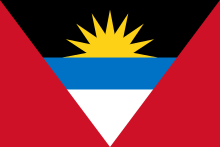
.svg.png)
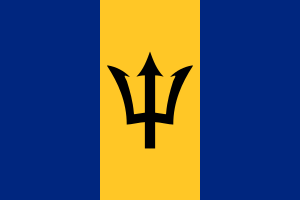



























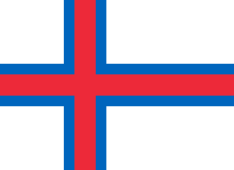




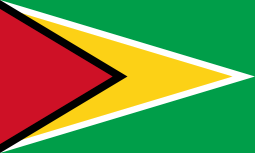











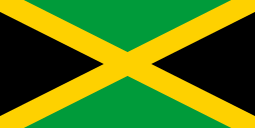
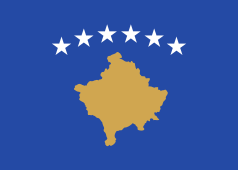



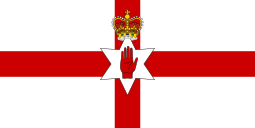








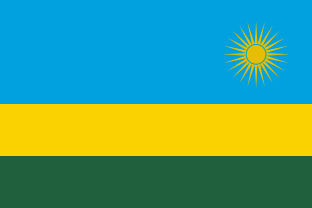



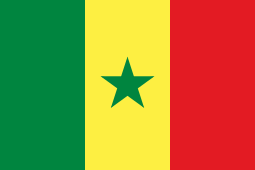






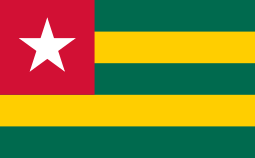
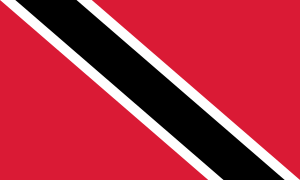




.svg.png)
.svg.png)
.svg.png)
.svg.png)
.svg.png)
.svg.png)
References
- Soar, Phil & Tyler, Martin (2005). The Official Illustrated History of Arsenal. Hamlyn. ISBN 978-0-600-61344-2.
- "Mertesacker". Arsenal website.
- "Youth sides to play at Meadow Park". 30 July 2013.
- "Arsenal Academy's Awards". Arsenal.com.
- "Academy Final- Arsenal 5-3 Nottm Forest - Report". Arsenal Broadband Limited. Retrieved 11 May 2010.
- "Academy Final- Tottenham 0-1 Arsenal - Report". Arsenal Broadband Limited. Retrieved 17 May 2009.
- "Woolwich Arsenal Reserves". Football Club History Database.
- Kelly, Andy. "Complete Honours List". Arsenal Pics. Archived from the original on 8 April 2003. Retrieved 3 December 2006.
- "Arsenal at war". Arsenal.com.
- Haynes, Graham (1998). A-Z of Bees: Brentford Encyclopaedia. Yore Publications. p. 82. ISBN 1 874427 57 7.
- "Margate & Lorient: Arsenal's breeding grounds". Sports Keeda.com.
- "Margate FC A History". Margate-FC.co.uk.
- "Arsenal 0-0 Colchester United". coludata.co.uk.
- Blakeman, M (2010) The Official History of the Eastern Counties Football League 1935-2010, Volume II ISBN 978-1-908037-02-2
- "Arsenal reserves get a breakthrough of sorts". Sport Keeda.com.
- "Andries Jonker appointed Academy manager". www.arsenal.com. Retrieved 1 August 2018.
- "Youth academy coaches re-organisation". www.arsenal.com. Retrieved 1 August 2018.
- "New Academy facility formally unveiled". www.arsenal.com. Retrieved 1 August 2018.
- "Jonker named head coach at Wolfsburg". www.arsenal.com. Retrieved 1 August 2018.
- "The History of the Middlesex County FA".
- "South East Counties League: Archives". SCEFL.com.
- "Arsenal lose in NextGen third-place play-off". Eurosport. 31 March 2013. Retrieved 29 May 2020.
- "Arsenal 1-0 CSKA Moscow: Gnabry grabs plaudits but dogged defenders are the quiet stars". Four Four Two.com.
- "Clinical Arsenal overcome Shakhtar". UEFA.com.
- "Arsenal u21s 2-1 Blackburn Rovers". Rovers.co.uk.
- "Arsenal 3 Aston Villa 1- Villa youngsters suffer play-off final defeat". Birmingham Mail.
- "Arsenal's U-13s win national cup final". Arsenal.com.
- "Congrats to our Under-14s". Arsenal.com.
- "Per Mertesacker to lead Arsenal academy". Arsenal.com.
- "Academy". Arsenal F.C. Retrieved 24 September 2017.
- "Arsenal – Squad". UEFA. Retrieved 29 November 2018.
- "Academy - Arsenal.com". www.arsenal.com. Retrieved 14 October 2018.
- "Arsenal Reserves: Honours". NTL World.com. Archived from the original on 8 April 2003.
External links
- Official website
- Information about the reserves from Arseweb
- Arsenal FC Academy homepage on Arsenal.com (dated 2009)